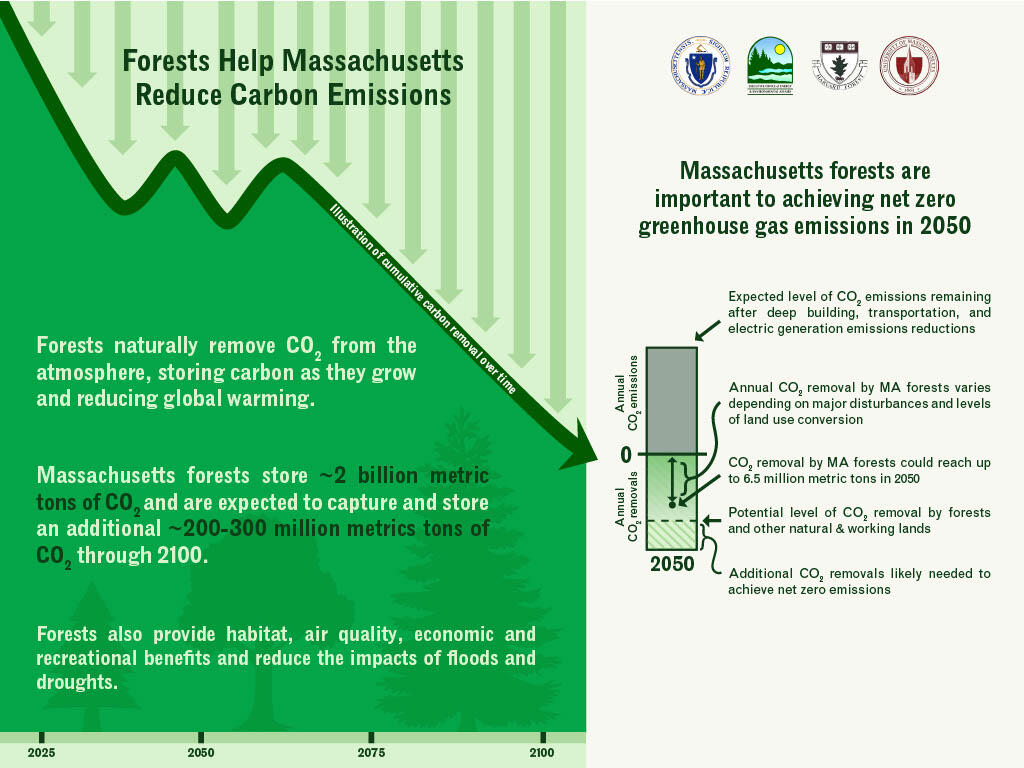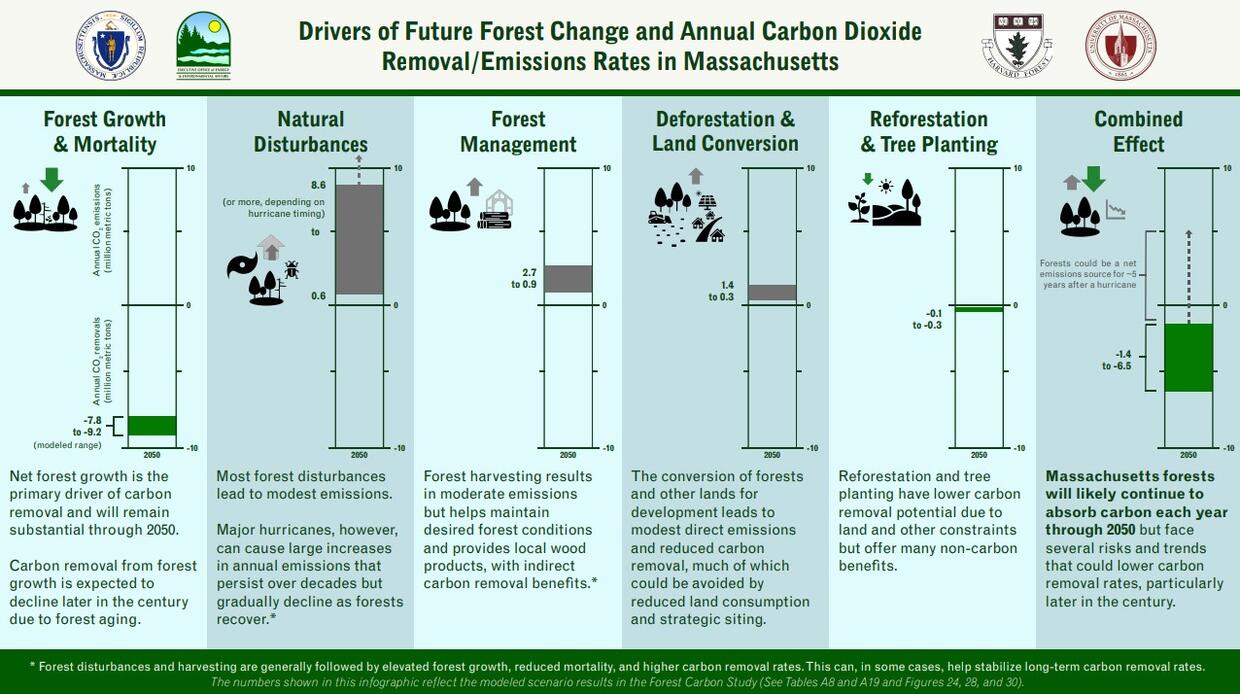Overview of Study
The Forest Carbon Study is an update to the 2050 Decarbonization Roadmap Study's Land Sector Report. The Executive Office of Energy and Environmental Affairs (EEA) contracted the same team of researchers at Harvard University’s Harvard Forest and the University of Massachusetts in Amherst, MA to:
- Model forest growth and mortality in Massachusetts through the end of this century;
- Assess the impact of ecological disturbances and land conversion on carbon sequestration and emissions by forests;
- Assess the potential of various strategies to enhance forest carbon sequestration and reduce carbon emissions.
The research team modeled a range of possible futures for statewide forest management, timber use, solar and building development, and ecological disturbances like hurricanes and invasive insects. Staff from the Department of Conservation and Recreation then assessed the modeling outputs of forest management scenarios against indicators of forest health and resilience to climate change.
Technical Report and Executive Summary
Overview: Forest Carbon Study Executive Summary
Technical Report: Forest Carbon Study: The Impact of Alternative Land-use Scenarios on Terrestrial Carbon Storage and Sequestration in Massachusetts
The Forest Carbon Study technical report and executive summary are available in English. Request translation of the executive summary. The translation request form is also available in Español, Português, 中文, Tiếng Việt, and Kreyòl Ayisyen.
Key Findings
The Forest Carbon Study finds that limiting forest loss, ensuring forest recovery after major disturbances, and reducing emissions from timber harvest are actions with the greatest potential to protect carbon storage in forests and support ongoing net carbon emissions removal in the long term. The study also finds that active forest management can improve forest adaptive capacity and resilience to climate change, and that modest increases in carbon sequestration can be achieved by reforesting open land.
The full report and executive summary have additional and more detailed results.
Infographic #1: Massachusetts forests are important to achieving net zero carbon emissions in 2050
Stakeholder Engagement
EEA convened three workshops in 2023 and 2024 to inform the development of the study's forest management scenarios. Close to 40 stakeholders, subject matter experts, and state staff were invited to participate in the technical workshops.
- The first workshop, held in June 2023, provided an overview of the study’s scope and sought input on the approach to modeling forest reserve expansion, climate-oriented forest management, and improved wood utilization.
- The second workshop, held in September 2023, sought input on the technical aspects of modeling forest reserves, timber harvest, and wood utilization.
- The third workshop, held in May 2024, provided initial modeling results and sought input on the initial key takeaways.
EEA is having a webinar on Monday, March 24, 2025, 3PM – 4PM, to present and answer questions about the key findings and takeaways from the Forest Carbon Study. Please register for the webinar, to be held on Zoom.
The presentation slide deck is available in English. The presentation portion of the webinar will be recorded, and the recording will be posted on this webpage afterwards.
Remaining questions about the Forest Carbon Study can be sent to gwsa@mass.gov

